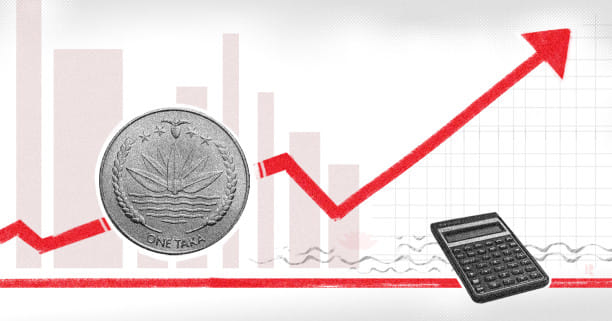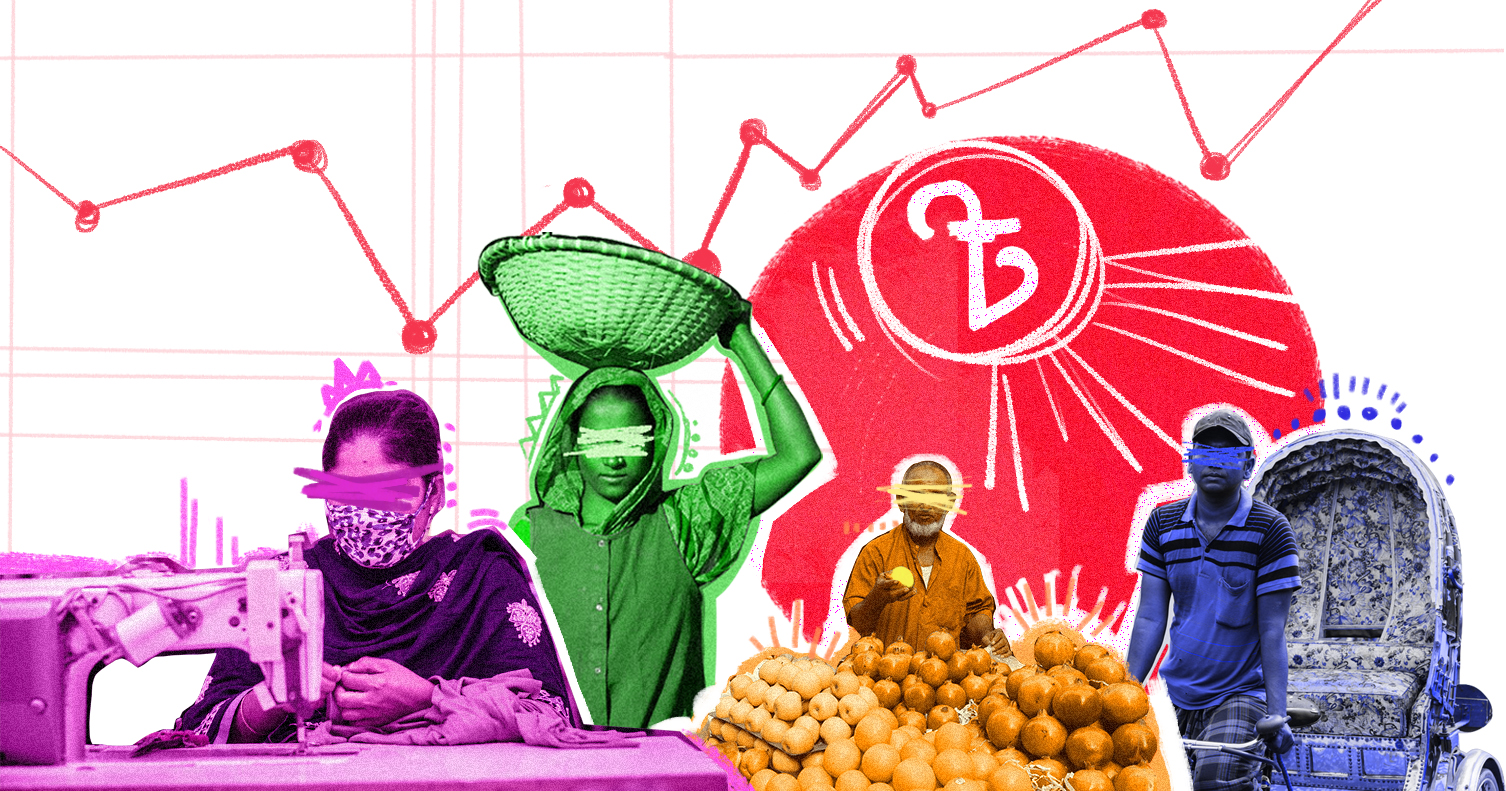The nation expects brevity and sobriety in the budget

Understanding the nation's expectations in designing the budget for FY2023-24 is essential. This would be the last budget of the Awami League government's third term in office. And hence there are expectations of seeing it as a concluding statement of a journey, a summary report – not a bungling attempt to open another Pandora's box. The rule of writing the summary of a thesis is not to introduce any new arguments in concluding remarks, and that very style must be followed in formulating the last budget of AL's current term.
Herein lies the irony of Bangladesh presenting the longest budget speech in the world while posing one of the weakest fiscal capacities on the globe. There is no need to cram the speech with a self-praising chorus and complacencies. Instead, let people be the judge of the government's accomplishments so far. The finance minister could deliver a short speech on programme evaluation, along with the commitment towards and feasibility of completing unfinished projects.
Visionary statements are only appropriate for five-year planning documents, and there exists a separate ministry for this job. This budget warrants moderation in language and humility in attitude.
Addressing the declining trend of fiscal capacity, which has been dwindling over the years since 2012, should be the first priority of the FY2024 budget. It would be smart for the government to announce the formation of a new revenue ministry – separate from the finance ministry. The entire revenue administration must be run by a fully fledged minister, not just by a senior bureaucrat at the NBR, if the government really wants to make the revenue sector dynamic, pro-people, and accountable to parliament. This change is necessary if the country does not want to follow in the footprints of Sri Lanka.
Sri Lanka's revenue-GDP ratio was the best in South Asia, but the country plunged into a never-seen-before crisis when that ratio declined to eight percent in recent years from 17 percent in 2001. Although there are other reasons (such as inept debt management and unbridled spending) behind this collapse, its damage would have been minimised to a great extent had the country's fiscal capacity not turned hollow over time. India's revenue-GDP ratio was 11 percent in 2009 and is now close to 14 percent, suggesting how the country reaped the harvest of reforms in this area.
Bangladesh's sagging performance in terms of the revenue-GDP ratio, from 12 percent in 2012 to less than eight percent in 12 years, is a clear sign for us to be alert when it comes to macro-stability and the future of the economy, no matter how bright it may look now to some over-complacent politicians. If history is any guide, danger descends on nations quite abruptly, without leaving much room for disaster management. That is what we have seen in the cases of Pakistan and Sri Lanka. Of course, Bangladesh is in a better position than them. But revenue incapacity and forex reserve depletion must be addressed effectively to avoid any possible slide into despair. In this case, pampering of the super-rich warrants reevaluation.
Going downhill in terms of the tax-GDP ratio sends two messages to policymakers: 1) It does not justify the parallel story of growth acceleration, and 2) Required reforms are absent in the tax administration which could help reap the benefits of growth.
Herein lies the irony of Bangladesh presenting the longest budget speech in the world while posing one of the weakest fiscal capacities on the globe. There is no need to cram the speech with a self-praising chorus and complacencies. Instead, let people be the judge of the government's accomplishments so far.
This acceleration has not been possible without better profitability in business. But businesses were not taxed by the government proportionately. The tax rate as a share of profit is highest at 55 percent in Sri Lanka and then at 50 percent in India. The corresponding rate is 34 percent for Pakistan and Bangladesh, suggesting that the top profit-makers are highly pampered and regularly excused in both countries.
The national budget should underscore the gravity of reforms in the fiscal sector. Complexity of tax calculations and bureaucratic tentacles are responsible for why it takes so long to prepare tax returns and pay in Bangladesh. World Bank data suggest that it takes 129 hours on average to prepare and pay taxes in Sri Lanka. The corresponding statistic for India is 251 hours, 283 hours for Pakistan, and as high as 435 hours for Bangladesh. This does not lend credence to the ministerial claim that the country is heading to an elevated level of smartness and development.
Bangladesh is far behind its neighbours in fiscal sector reforms and modernisation. The sheer amount of time needed to resolve insolvency proves how bureaucratic and lingering tangles are pulling corporate matters backward, despite the pressure from the prime minister to reduce hassle and sufferings for the business sector. As per the WB data, resolving insolvency takes only 1.7 years in Sri Lanka and 2.6 years in Pakistan, but a staggering four years in Bangladesh. India was able to reduce its insolvency resolution time to 1.6 years from as high as 4.3 years just a couple of years ago, evidencing that corporate reforms can be implemented if a regime is dedicated enough to make it happen. These attributes helped India to drastically improve in the ease of doing business index.
Bangladesh's fiscal pace is sluggish and irresolute. Hence, any bragging about ultra-ambitious commitments would be inappropriate in the coming budget – which otherwise should remain brief and sensible to attain credibility.
The increasing trend of fiscal incapacity is eventually trespassing into the monetary space as borrowing from the banking sector increases, thus crowding out private borrowers. It would be advisable to correct this structure and divide the finance ministry into three separate branches: finance, revenue, and investment plus economic relations. This would be the best strategy for the government to strengthen the fiscal and financial domains of the economy, and to insulate the country against fiscal bankruptcy in the long run.
Dr Birupaksha Paul is a professor of economics at the State University of New York at Cortland in the US.




 For all latest news, follow The Daily Star's Google News channel.
For all latest news, follow The Daily Star's Google News channel. 

Comments